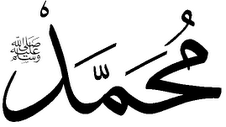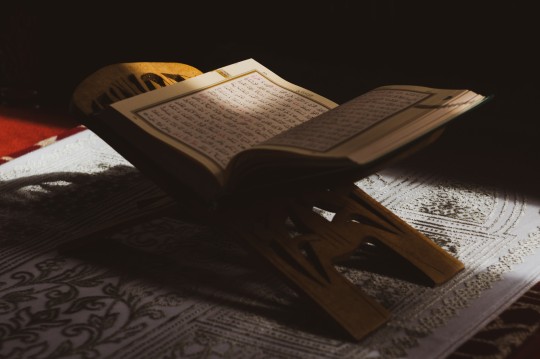[“Were It Not For You, I Would Not Have Created Creation.” ]
لولاك لولاك ما خلقت الأفلاكا
Ibn Taymiyyah’s writings about venerating the Prophet tend to be eclipsed by his more controversial thoughts and responsum. His exploration of the law laaka theme therefore, helps to shed light on another aspect of his character often ignored or overlooked by his admirers and detractors alike. In the eleventh volume of his Compendium of Legal Responses Ibn Taymiyyah, (Majma` Fataawaa (Riyadh: Daar al-`alam al-Kutub, 1991), 11:96-98) he writes:
The superiority of our Prophet over the Angels was demonstrated on the Night of the Ascension (laylat al-mi`raaj) when he arrived at a level where he could hear the ‘scratching of the pens’. He was now at a station higher than that of the Angels. Allah, Exalted is, He displays some of His tremendous power and amazing wisdom through righteous human beings, vis-a-via the Prophets and Saints, in ways which He does not do so through even the Angels. For He assembled in the former qualities that are dispersed throughout the other types of creation. So Allah created man’s body of the earth, but his spirit was created from the Highest Assembly (al-malaa’ al-a`laa).
This is why it is said: ‘Man is a microcosm, but contains the macrocosm. Now Muhammad, peace be upon him, is the master of humanity, the best of creation and the noblest of them in Allah’s sight. This is why it has been said that, ‘Allah created the universe because of him’. Or ‘Were it not for him, He would not have created the Throne, the Pedestal, the heaven, earth, sun or moon’. But this is not a hadith of the Prophet, peace be upon him: neither authentic nor weak. It was not related by any of those versed in the Hadith discipline on the authority of the Prophet, peace be upon him. Nor is it known to have come from any of the Companions. In fact, it is not known who actually uttered it.
It is possible, though, to explain it from a correct perspective such as by Allah’s saying: He has subjected to you whatever is in the heavens and the earth. 45:13 And by His words: He subjected the ships to you that they may run upon the sea at His command, and He subjected the rivers to you. He subjected to you the sun and the moon, constant in their courses, and subjected to you the night and the day. And gave you of all you ask Him; and if you count the favours of Allah, you shall never number them.
There are other passages similar to these, all of which clarify that Allah created creation for humanity’s sake even though it is known that Allah, in doing so, had in mind an immense wisdom besides this and far greater than this. Here, though, He explains to humanity the benefits creation contains for them, and how they are immersed in Divine favours Thus when it is said, ‘He did such and such [for this or that reason]’ it does not exclude the possibility of there being other wisdoms for the act. Similarly, the statement: ‘Were it not for so and so, such and such would not have been created’, does not negate the possibility of their being another higher wisdom behind the act. Instead it implies that since the most pious of humanity is Muhammad, creating him was a desirable end of deep-seated wisdom more so than for creating anyone else, and that the completion of creation and the crown of its very perfection only occurred with Muhammad, peace be upon him… Now since man is the the seal of creation; the last of creation and its microcosm, then the best of them will also be the best of all creation in the absolute sense. Since Muhammad is the essence of humanity, the axis of creation and the distributor of the collective, he is as it were, the ultimate purpose behind creation. So an objection cannot be raised against the saying, ‘For him all was created’, or ‘Were it not for him creation would not have been created’. Thus, if these or similar words are explained according to what the Book or Sunnah indicate, they should be accepted.
In summary: since creation was created for the benefit of humanity, and since humanity was created to know and worship Allah, and since perfection of this knowledge,worship and servitude was made manifest in the Prophet, peace be upon him, it can rightly be said that he is the ultimate purpose for creation being brought into existence. This, then, is the classical appreciation of the law laaka tradition, despite recent protestations to the contrary. O Allah, shower abundant blessings of peace upon our master, Muhammad; the paragon of human perfection, the best of all creation.
[from Shurqeel Abu Aliyyah Sharif]
For discussions of authentic hadiths relating the same meaning as ‘law laak‘ see: ‘Hadith of law laak’
Peace and Blessings upon the Prophet, his Family, and his Companions



